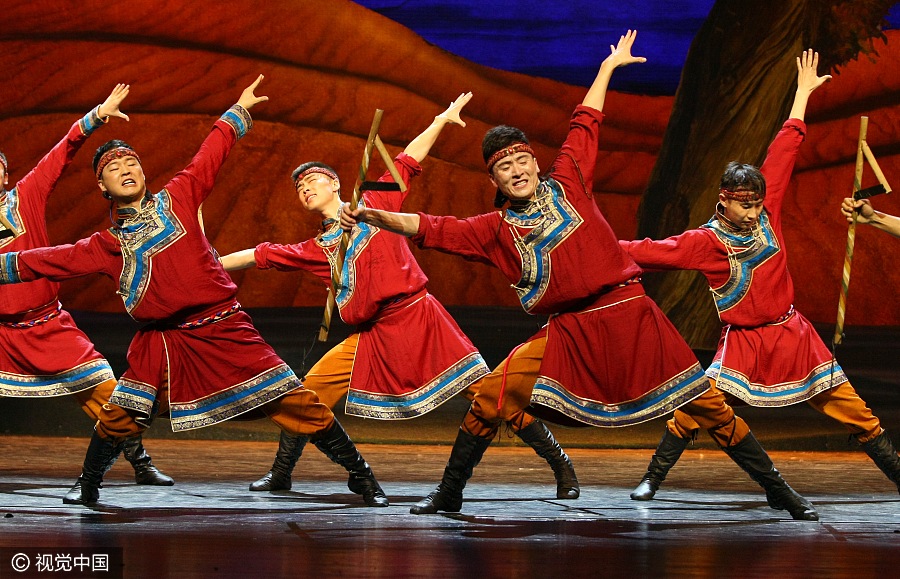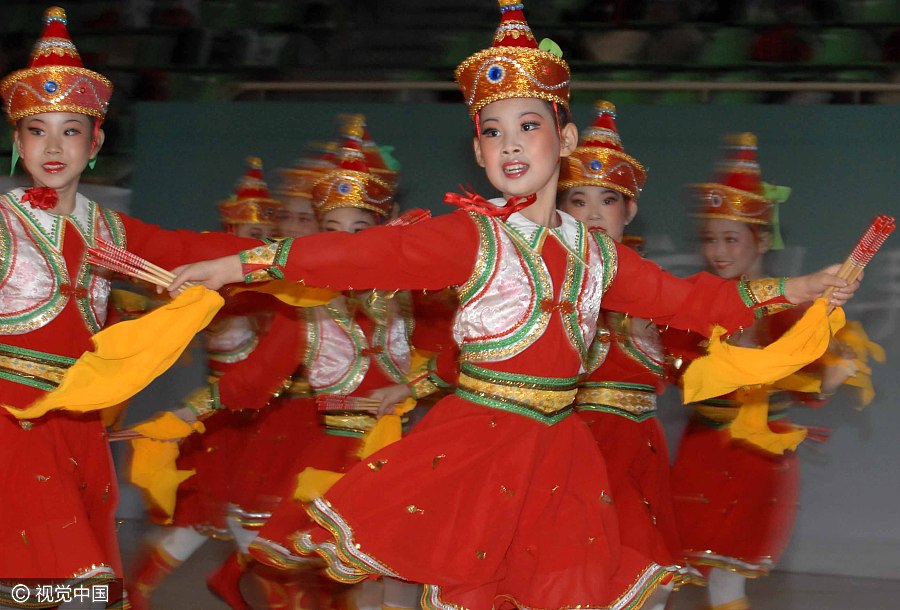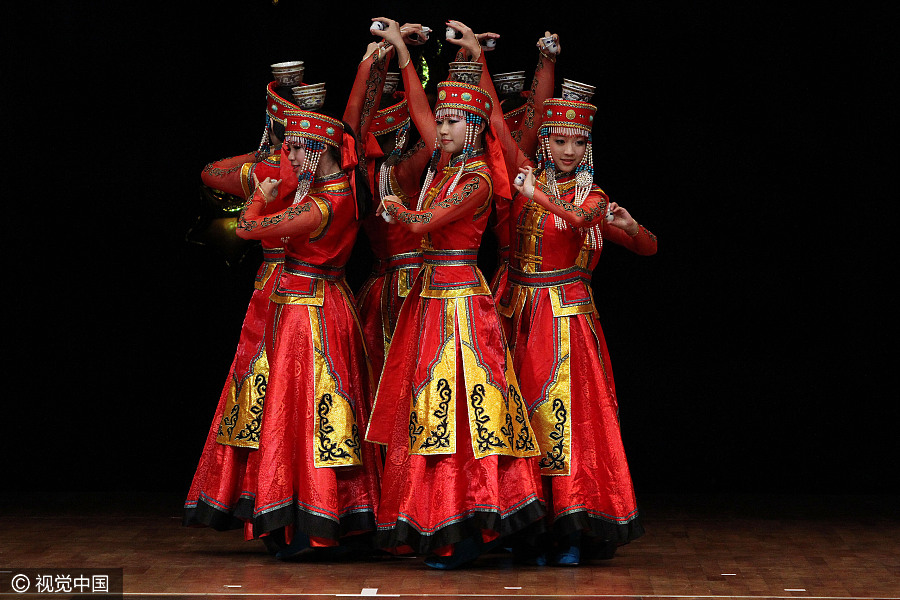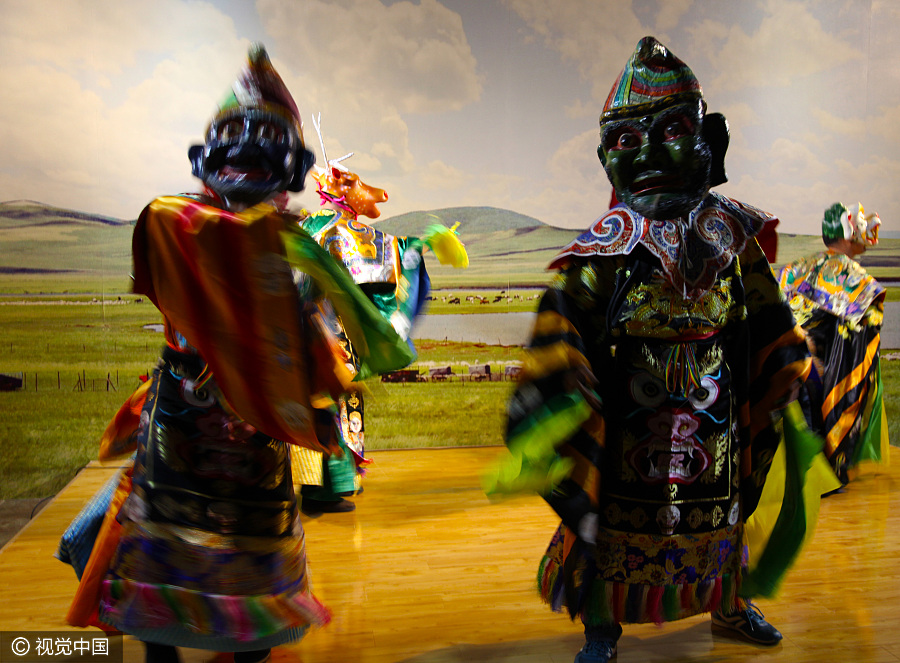Inner Mongolian people love dancing and singing and have created many kinds of dances. As an important cultural heritage, these dances are famous for their vigorous body movements or sacred religious meaning.
Learn more about five traditional Inner Mongolian dances that are still performed by local people.

Traditional Inner Mongolian dance. [Photo/VCG]
Andai dance
Andai dance originated from the south of Horqin Grassland as a religious dance.
It was used to pray to the gods and cure sicknesses. People would perform this dance to ask for blessings from the gods, prevent disease, and keep away bad luck. Over time, the dance gradually became used for entertainment.

Chopsticks dance. [Photo/VCG]
Chopsticks dance
The chopsticks dance was originally a single men's dance at marriage ceremonies or festivals, usually accompanied by a stringed instrument and singing.
Today, people tie chopsticks together with a small rope and decorate them with red silks, making a bright stage prop. Performers can hold the chopsticks in one or two hands.

Traditional Inner Mongolian dance. [Photo/VCG]
Wine-cup dance
After eating and drinking to their heart's content at a festive feast, Inner Mongolian people will grab wine cups from the table and start to dance to express happiness. The wine-cup dance arose from this custom.
As a mixture of toughness and gentleness, the dance appears graceful and simple and has lasting appeal.

Traditional Inner Mongolian dance. [Photo/VCG]
Chagan Lindar dance
On the Xinlin Gol Grassland of Inner Mongolia there is a recreational dance called "Chagan Lindar", which means "playing with a stick" in Mongolian.It is often performed by young men and women every mid-autumn when there is a full moon.

Traditional Inner Mongolian dance. [Photo/VCG]
Shaman Dance
Shaman Dance is performed by shaman (sorcerers or witches) praying to gods, sacrificing, dispelling evil and curing diseases. It was once popular among northern Chinese tribes, a result of primitive hunting, fishing and totem worshipping activities.It is called tiao da shen by common people.

